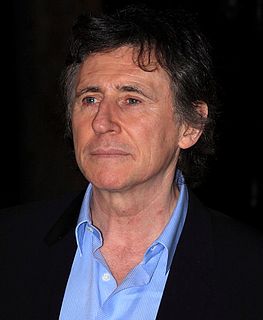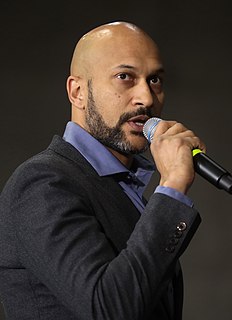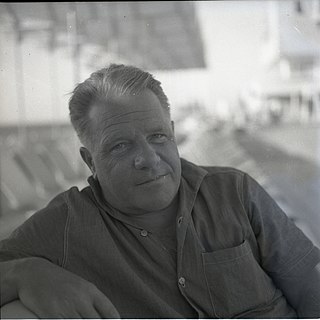Top 1200 Youth Culture Quotes & Sayings - Page 20
Explore popular Youth Culture quotes.
Last updated on November 23, 2024.
The pedagogy of authoritarianism is alive and well in the United States, and its repression of public memory takes place not only through the screen culture and institutional apparatuses of conformity, but is also reproduced through a culture of fear and a carceral state that imprisons more people than any other country in the world.
Generally speaking, I don't think people know a great deal about the Viking culture, apart from the label that is usually attached to them, either pillagers or deviants who came and brought back loot to Norway. It was an incredibly sophisticated, complex and layered culture. They had their own laws, many of which protected women.
It just never occurred to me that a school’s policy and student culture could make a big difference in the way I would experience my body while on campus. I didn’t think there was anything to choose about a sexual culture. I’d only ever known the one I grew up in. But it did matter, and in ways I wouldn’t have even predicted.
From the viewpoint of political power, culture is absolutely vital. So vital, indeed, that power cannot operate without it. It is culture, in the sense of the everyday habits and beliefs of a people, which beds power down, makes it appear natural and inevitable, turns it into spontaneous reflex and response.
If my life is any example, the work that youth workers are doing is very, very important. It tends to get marginalized in the church or seen as less important than being a senior minister in a large, prosperous congregation; but I don't believe that for a minute. I think this is absolutely critical work in the life of the church; and I think my path in life would have been much different if it hadn't been for my youth minister, Burt Randle, and a series of campus ministers in both college and graduate school.
As the end of the century approaches, all our culture is like the culture of flies at the beginning of winter. Having lost their agility, dreamy and demented, they turn slowly about the window in the first icy mists of morning. They give themselves a last wash and brush-up, their oscillated eyes roll, and they fall down the curtains.
Our culture is in deep trouble, and at the heart of its trouble is its loss of a vision for manhood. If its difficult for you and me as adult males to maintain our masculine balance in this gender-neutral culture, imagine what it must be like for our sons, who are growing up in an increasingly feminized world.
Once you have an innovation culture, even those who are not scientists or engineers - poets, actors, journalists - they, as communities, embrace the meaning of what it is to be scientifically literate. They embrace the concept of an innovation culture. They vote in ways that promote it. They don't fight science and they don't fight technology.
Francis Scott Fitzgerald really read culture pretty damn clearly. It was he who understood that artistic achievement, really imaginative work, goes where the money is. Where people can afford to buy books and paintings. He linked money - not always in a positive way - to being able to encourage culture.
In the midst of a culture that is rationally organized for a vocational workaday life, there is hardly any room for the cultivation of acosmic brotherliness, unless it is among strata who are economically carefree. Under the technical and social conditions of rational culture, an imitation of the life of Buddha, Jesus, or Francis seems condemned to failure for purely external reasons.
Somewhere in the child, somewhere in the adult, there is a hard, irreducible, stubborn core of biological urgency, and biological necessity, and biological reason that culture cannot reach and that reserves the right, which sooner or later it will exercise, to judge the culture and resist and revise it.
In times of totalitarian or autocratic rule, music (indeed culture in general) is often the only avenue of independent thought. It is the only way people can meet as equals, and exchange ideas. Culture then becomes primarily the voice of the oppressed and it takes over from politics as a driving force for change.
Her voice was slightly accented but her French was perfect. Someone who'd not just learned the language but loved it. And it showed with every syllable. Gamache knew it was impossible to split language from culture. That without one the other withered. To love the language was to respect the culture.
Like all people, we perceive the version of reality that our culture communicates. Like others having or living in more than one culture, we get multiple, often opposing messages. The coming together of two self-consistent but habitually incomparable frames of reference causes un choque, a cultural collision.
Our answer is the world's hope; it is to rely on youth. The cruelties and the obstacles of this swiftly changing planet will not yield to obsolete dogmas and outworn slogans. It cannot be moved by those who cling to a present which is already dying, who prefer the illusion of security to the excitement and danger which comes with even the most peaceful progress. This world demands the qualities of youth: not a time of life but a state of mind, a temper of the will, a quality of imagination, a predominance of courage over timidity, of the appetite for adventure over the life of ease...
If you're part of any kind of writerly community, some of those people will have gone through MFA programs, and their thinking leaks into yours. So whatever changes MFAs have made to the culture, it's to the culture as a whole. It can't be pinned down to individual books in a way that some people would like to do.
We face a conflict between civilisation and culture, which used to be on the same side. Civilisation means rational reflection, material wellbeing, individual autonomy and ironic self-doubt; culture means a form of life that is customary, collective, passionate, spontaneous, unreflective and irrational.
I don't necessarily believe that 'The Cosby Show' should disappear as a cultural reference, but it is. That's sad to me. I understand why. He was a man who possibly did some really bad things, and he should be punished beyond a doubt. But that show, and the impact it had not just on black culture, but culture, was amazing.
We face a conflict between civilisation and culture, which used to be on the same side. Civilisation means rational reflection, material wellbeing, individual autonomy and ironic self-doubt; culture means a form of life that is customary, collective, passionate, spontaneous, unreflective and arational.
The problem in Hollywood is that they try to become the only kind of cinema in the world, okay? The imposition everywhere of a unique culture, which is Hollywood culture, and a unique way of life, which is the American way of life. But Hollywood has forgotten that, in the past, what made Hollywood great and what made it go ahead was the fact that Hollywood was fed with, for example, Jewish directors coming from Germany or Austria and enriching Hollywood. In 15, 20 years, Hollywood became imperialistic. Cinema goes ahead when it is marriaged by other culture. Otherwise, it turns on itself.
What has our culture lost in 1980 that the avant-garde had in 1890? Ebullience, idealism, confidence, the belief that there was plenty of territory to explore, and above all the sense that art, in the most disinterested and noble way, could find the necessary metaphors by which a radically changing culture could be explained to its inhabitants.
The idea that we live in a post-modern culture is a myth. In fact a post-modern culture is an impossibility; it would be utterly unlivable. Nobody is a post-modernist when it comes to reading the labels on a medicine bottle versus a box of rat poison! You better believe that texts have objective meaning!
The fact that what we believe about marriage - that it should be between a man and a woman - and that we're pro-life, somehow that becomes radical? Why is that? It's because our culture has changed. But the truth is, culture may change, people change, but the Word of God never changes, and that's what we rest our belief system on.
I really feel concerned about young people within our present culture. Our present culture, we have to change. Change is inevitable and I wasn't raised in our present culture but it has great pressure that as a young person I never had. Material pressure, social pressure, visual pressure, how you look, and I just try to appeal to young people to think for themselves, to be their own person, and to ask questions and also be very attentive to our planet and our environment.
I speak a lot about what I call "the trance of unworthiness" which is really epidemic in our culture, this sense of "I'm not enough," or "something's wrong with me." Most of us have some level of it because our culture has all these standards (handed down through our families) of what it means to be okay.
Puffy's contribution to hip-hop culture was the remix. He offered us the music that his mom played in front of him, with newer drums and younger artists. That worked, and will consistently be there. The remix comes right after the original record, that's something Puffy did to influence the culture.
Every people, every society, needs a culture of resistance, a culture of being difficult and disobedient, that is the only way they will ever be able to stand up to the inevitable abuse of power by whoever runs the state apparatus, the capitalists, the communists, the socialists, the Gandhians, whoever.
There are things that I am passionate about, whether it's the season or just kind sort of what is necessary for culture. I like the idea that I can shape the culture in any shape or form that I can in whatever topic. But a lot of times, for me, it is about representing "the other," whoever "the other" is.
Most women in our culture, then, are disordered when it comes to issues of self-worth, self-entitlement, self-nourishment, and comfort with their own bodies; eating disorders, far from being 'bizarre' and anomalous, are utterly continuous with a dominant element of the experience of being female in this culture.
























































